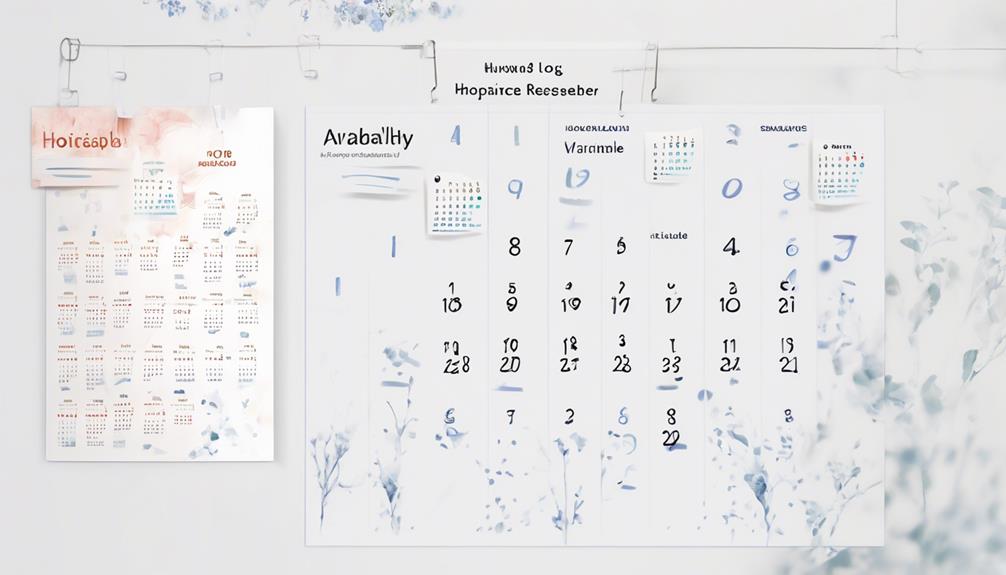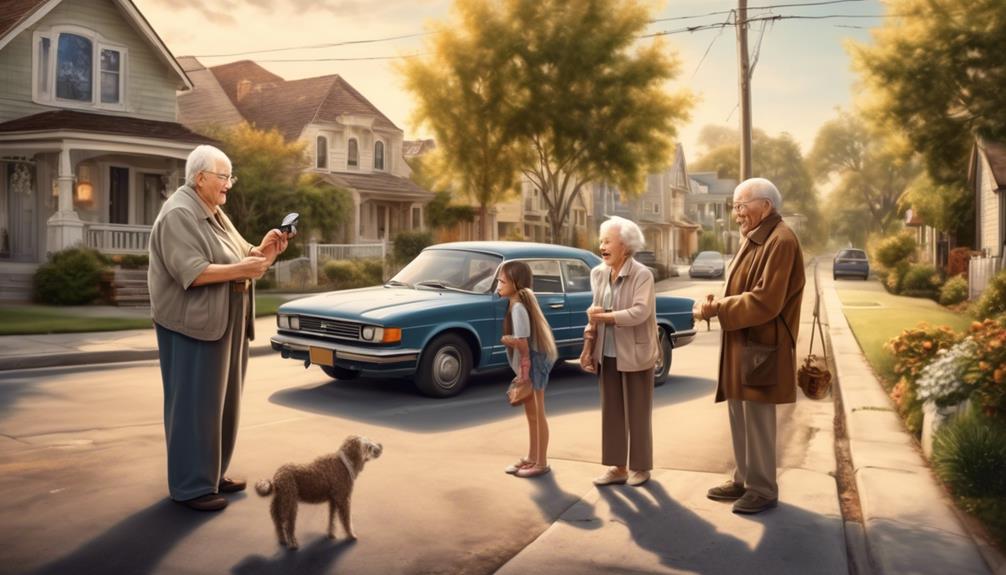Were you aware that the duration of hospice care can vary significantly from person to person?
Translation: Were you aware that the length of time needed for hospice care can differ greatly from one individual to another?
While some may think of hospice as a short-term end-of-life service, the reality is that individuals can receive care for much longer periods than expected.
Factors such as disease progression, access to resources, and unique care needs all play a role in determining how long someone may stay in hospice.
Understanding these influences can provide valuable insight into the complexities of end-of-life care and the varied experiences individuals have within the hospice setting.
Key Takeaways
- Younger patients tend to have longer hospice stays.
- Conditions like dementia can extend hospice duration.
- Average hospice stay is around 70 days.
- Tailored care supports unique patient needs in hospice.
Factors Influencing Hospice Stay Duration
Younger patients enrolling in hospice typically experience a longer stay duration due to various influencing factors. As patients facing terminal illnesses, the decision to enter hospice care is often a challenging one, but one that can greatly impact the quality of life at the end-of-life stage.
The eligibility for hospice services is usually determined by a prognosis of six months or less, yet some patients surpass this life expectancy estimate, leading to extended stays in hospice. Men, in particular, exhibit slightly higher mortality rates in hospice compared to women, affecting the length of their hospice stay.
Furthermore, individuals with conditions like dementia or stroke may have a lower mortality rate, resulting in prolonged hospice stays. The primary reason for entering hospice also plays a significant role in determining how long a patient remains in hospice care. Understanding these factors can help us provide the best possible support and care for each patient as they navigate this critical stage in their lives.
Average Length of Hospice Care

On average, individuals in hospice receive care for approximately 70 days, with variations based on individual needs and disease progression. While this number provides a general idea, it's essential to recognize the uniqueness of each patient's journey through end-of-life stages. Some patients may live longer, surpassing the average, while others may require shorter stays. Hospice care aims to offer compassionate support to patients facing terminal illnesses, ensuring their comfort and dignity throughout their time in care.
During their stay, patients receive not only physical care but also emotional and spiritual support to ease their symptoms and improve their quality of life. Family members also benefit from the care provided, receiving guidance and assistance in caring for their loved ones during this challenging time.
Understanding the average length of hospice care can help families and healthcare providers better prepare for the journey ahead, supporting patients and their loved ones with the utmost compassion and care.
Impact of Health Conditions on Stay
Considering the impact of various health conditions, patients in hospice may experience differing lengths of stay based on the progression and complexity of their illnesses. Patients with specific conditions like dementia or stroke often have longer stays in hospice due to the nature of these illnesses. Complex or chronic health issues can lead to extended hospice stays as well. Additionally, health conditions with slower disease progression may result in a prolonged time in hospice care.
The influence of health conditions on hospice stays underscores the importance of tailored care and support for individuals facing these challenges. Understanding the nuances of each patient's condition allows hospice teams to provide compassionate and effective care that meets their unique needs.
Understanding Hospice Stay Variability

Understanding the variability in hospice stays offers valuable insights into the diverse experiences individuals encounter at this critical juncture in their lives. While the average hospice patient stays for about 70 days, the actual duration can vary significantly.
Approximately half of patients receiving hospice care pass away within three weeks of enrollment, underscoring the unpredictability of end-of-life timelines. Surprisingly, 12-15% of individuals in hospice actually live beyond six months, defying initial prognoses and highlighting the individualized nature of each patient's condition.
It's crucial to recognize that some people may die within six months as expected, while others may surpass this timeframe, emphasizing the need for flexible and personalized care approaches in hospice settings. This variability showcases the importance of timely decisions regarding hospice enrollment and the need for families to be informed about the potential outcomes of their loved one's care.
Predicting Hospice Care Duration
Navigating the complexities of hospice care involves predicting the duration of a patient's stay based on physicians' estimations of a life expectancy of less than six months. In this delicate process, we strive to provide the best care possible, understanding the uncertainties that come with predicting how long someone may live in hospice.
Here are some key points to consider:
- Individual Variability: Life expectancy predictions for hospice care are approximate and can vary significantly due to the uniqueness of each patient's condition.
- Exceeding Expectations: While the typical prognosis for hospice care is under six months, some patients may live longer than initially predicted, showing the importance of personalized care.
- Continuous Monitoring: The accuracy of predicting hospice care duration hinges on frequent medical assessments and ongoing observation of the patient's health status.
In our commitment to serving others, we approach each individual with compassion and understanding, recognizing the significance of predicting hospice care duration while acknowledging the unpredictability of life.
Frequently Asked Questions
How Long Do Hospice Patients Live on Average?
On average, hospice patients live approximately 70 days. This time can vary greatly depending on individual circumstances.
It's important to provide comfort, support, and dignity during this challenging period. We aim to help improve quality of life and honor the wishes of our patients and their families.
Hospice care is about compassion, understanding, and ensuring that each person's journey is as peaceful as possible.
What Are the 4 Stages of Death in Hospice Patients?
In hospice, patients often navigate through the stages of denial, anger, bargaining, and acceptance. These emotional phases, as part of the Kubler-Ross model, guide our support for individuals and families facing end-of-life care.
Each stage illuminates a unique facet of the journey towards embracing death. How can we best nurture and understand these transitions to provide compassionate care for those in need?
Is Hospice the Last Stage of Life?
Yes, hospice is often considered the last stage of life. It focuses on providing comfort, support, and dignity during the final stages of a terminal illness.
Hospice care is specialized to ensure patients are pain-free, comfortable, and surrounded by loved ones as they approach the end of life. It aims to enhance the quality of life and address the emotional, social, and spiritual needs of both patients and their families.
What Is the Longest Stay in Hospice?
When considering the longest stay in hospice, it's vital to acknowledge the unique journeys individuals experience during this time. While rare, extended stays can occur due to unexpected changes in health.
Hospice emphasizes comfort and support in the final stages, regardless of the duration. Each person's story is distinct, and our focus remains on providing compassionate care throughout every moment of their hospice experience.
Conclusion
In the unpredictable dance of life and death, hospice care offers solace and support. While some may journey through its doors only briefly, others find unexpected respite in its embrace.
The ticking clock of time fades into the background, as patients and families navigate the unknown together. Hospice, a paradoxical haven of both fleeting moments and lasting memories, reminds us that the length of our stay isn't what defines our journey.









